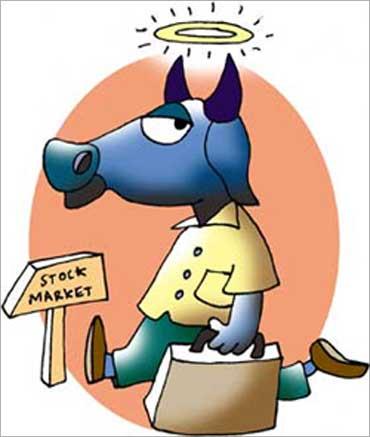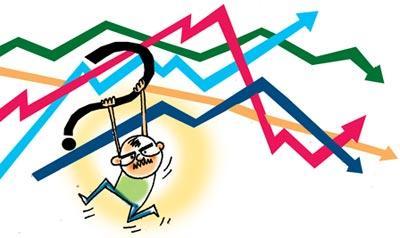
Every so often, it's worth reviewing each stock in your portfolio to make sure the reasons you bought it in the first place are intact.
If you think about it, the decision to hold on to a stock is not so different to the decision to buy it at the current price. After all, you would only hold on to a stock if you thought it would earn you an acceptable return over time. So, it's almost as important to have a basic rationale for keeping a stock as it is for buying it in the first place.
There is a lot of talk about buying stocks and holding them over the long term, but what of selling? When should you sell? When your stock has gained 15 per cent? When it has fallen 15 per cent?
Investors probably make more mistakes in selling stocks than in any area of investing, and selling one stock to buy another can potentially cost you in two ways.
First, the opportunity cost. If you get it wrong, you may not only make a poor return on the stock you just bought, you may also miss out on gains from the stock you just sold.
Second, the "cost" cost. It's expensive to buy and sell shares all the time and the higher your portfolio "turnover" -- the more often you buy and sell -- the more it will cost you.
The decision to sell a stock is fraught with difficulty and complicated by emotion, and that's why investors so often make some common mistakes.
Four such mistakes and ways to avoid them are explored below:
1. Selling stocks that have done well and keeping those that have fared poorly
The profit you've made from a stock in the past may have little or no relationship to the profit you'll make in the future. While there's something to be said for cashing in some of your gain if a stock has moved to a level at which you believe it is overvalued, don't make decisions about long-term holdings on past performance alone.
Get back to basics and ask yourself: How healthy are those earnings? What are the growth forecasts? How likely is the company to achieve those forecasts?

2. Selling a stock because it has done badly
If selling a stock because it does well is faulty logic, there's equally little sense in selling a stock just because it has performed poorly (although time makes the difference here).
If you've held a poor performer for a long period, you'll need to be absolutely confident that your analysis isn't off-beam or that you haven't missed an important change. If, however, you have held a stock for just six or 12 months and the market has turned sharply against it, it's time for you to revisit your original analysis.
Stock prices, remember, venture far away from reality in both directions and if you paid a fair price for the company and the earnings are coming through, or are likely to, there's every chance its performance will pick up.
The risk is that the company may be overtaken by subsequent events before the share price has time to recover -- so obviously you'll need to watch closely any stock that's going backwards.
Selling stocks that have fallen in value often means that you buy high and sell low -- no way to make a profit. However, just as it's unwise to sell stocks solely because they have fallen in value, it's even more common for investors to get it wrong in the other direction altogether.

3. Not selling a stock because it has done badly
If a stock in your portfolio has done badly, there can only be one of two reasons for it:
1. The market is wrong, or
2. You were wrong about the company when you bought it.
Anyone who believes they are always right will never win in markets. But plenty of investors believe that holding on to stocks that have fallen in value is a smart move because "everything goes up eventually".
It's simply not so. Plenty of stocks skid along the bottom for years. Yes, the share market overall tends to rise over time but all shares don't.
Again, revisit the reasons why you bought the company in the first place. Have the earnings come through? Do they continue to come through? Did you miss something in your analysis? And even if you conclude that the market is definitely wrong, how long will it take to get it right? Can you identify any key trigger events for that to happen? And can you afford to wait?

4. Not selling a stock because it has done well
At the other end of the spectrum, don't fall in love with your stocks because they won't love you back!
A stock doesn't care who owns it.
If many investors are tempted to sell stocks because they've made gains, others take it too far in the opposite direction, refusing to sell shares that are well past their used-by dates because "they've always done well in the past".
If you're beginning to think that some of the biggest mistakes have a common thread, you're absolutely right. Many investors come unstuck by making decisions to buy or sell a stock based purely on historical share price movements. While these are obviously worth monitoring, it's the fundamental outlook for a company that usually determines its share price performance and record of paying dividends over long periods of time -- the duration of concern for the majority of long-term investors.